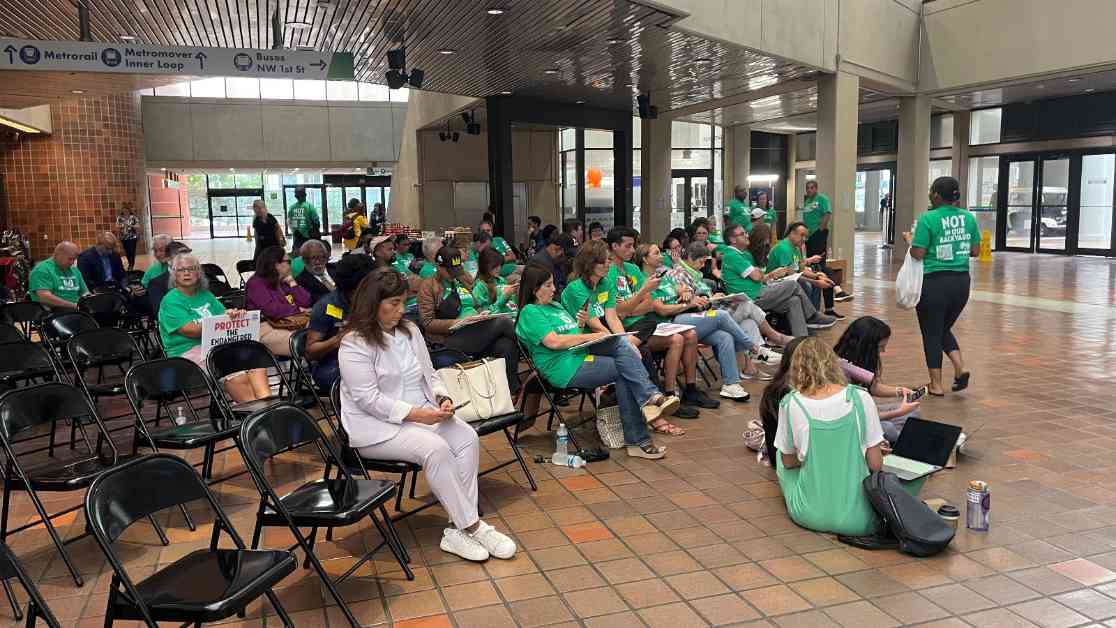Florida’s Debate: Locating the Nation’s Largest Trash Incinerator
Florida is at the center of a heated debate as leaders in the state’s most populous county grapple with the decision of where to build what could potentially become the nation’s largest trash incinerator. The incinerator, capable of burning up to 4,000 tons of garbage a day, has sparked outrage among residents, civil rights groups, and environmental advocates alike.
Residents Rally Against Incinerator Plans
In a meeting held in September, leaders of Miami-Dade County faced a sea of protesters who vehemently opposed the construction of the incinerator near their homes. Clad in green T-shirts with the slogan “MIRAMAR SAYS NO TO INCINERATOR! NOT IN OUR BACKYARD,” residents expressed concerns about the detrimental effects the facility could have on property values, the environment, and public health.
Elisha Moultrie, a long-time Miramar resident and committee leader with the Miami-Dade NAACP, highlighted the environmental and racial injustices associated with the location of industrial waste facilities in communities of color. The four proposed sites for the incinerator all happened to be in or near diverse neighborhoods, raising questions about the equity of such decisions.
Environmental Justice and Public Health Concerns
The escalating clash between the need for effective waste management in Miami-Dade County and the rights of residents to a clean and safe environment underscores a broader national issue of environmental justice. Communities of color often bear the brunt of pollution from incinerators and other industrial facilities, leading to disparities in health outcomes.
Studies have shown that residents near incinerators face increased risks of heart disease, respiratory issues, and cancer due to exposure to pollutants like carbon monoxide and fine particulate matter. Despite assurances from county officials about the safety of modern incinerators, concerns persist about the potential health impacts, especially in light of past incidents like the fire that destroyed Miami-Dade’s old facility in 2023.
Looking Ahead: Policy Debates and Environmental Advocacy
As Florida grapples with the dilemma of waste management and environmental justice, the state’s lawmakers and regulators face mounting pressure to address the concerns raised by residents and advocacy groups. Efforts to nullify key protections under the Civil Rights Act and the push for more incinerators in various communities have sparked debates on the role of government in safeguarding public health and the environment.
While industry advocates argue that incineration is a necessary solution for managing waste, experts like bioethicist Keisha Ray emphasize the importance of reducing waste generation and promoting sustainable practices like recycling and composting. The need for a comprehensive approach to waste management that prioritizes public health, environmental equity, and community well-being remains at the forefront of the ongoing debate surrounding Florida’s trash incinerator plans.














